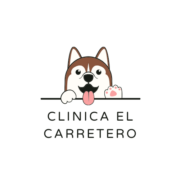As a veterinary nutritionist I’ve seen firsthand how proper nutrition transforms pets’ lives. A pet health nutrition center serves as your one-stop destination for all your furry friend’s dietary needs combining expert guidance with scientifically-backed nutritional solutions. I’ve dedicated my career to helping pet owners navigate the complex world of animal nutrition. Whether you’re dealing with food allergies weight management or specific health conditions a pet nutrition center offers personalized meal plans and expert consultations. The right nutrition isn’t just about filling food bowls – it’s about providing the building blocks for a longer healthier life for your beloved companions.
- Pet health nutrition centers provide comprehensive dietary care by combining expert guidance with scientifically-backed nutritional solutions for pets of all life stages
- Board-certified veterinary nutritionists perform detailed assessments using diagnostic tools, creating personalized meal plans based on factors like age, health conditions, and lifestyle
- Common nutrient deficiencies in pets include protein, calcium, taurine, essential fatty acids, and vitamin B12, affecting approximately 35% of pets according to veterinary studies
- Services typically include clinical nutrition assessments, custom meal planning, therapeutic nutrition protocols, and regular progress monitoring with specialized diagnostic equipment
- The right nutrition center should have ACVN-certified specialists, advanced diagnostic tools, on-site laboratory capabilities, and proper storage facilities for supplements and diet samples
- Starting a pet’s nutrition journey involves comprehensive evaluations, baseline testing, and gradual dietary transitions monitored through regular follow-up assessments
Pet Health Nutrition Center
A pet health nutrition center specializes in providing comprehensive dietary analysis services tailored for cats dogs. I’m focused on delivering evidence-based nutritional consultations that assess individual pet health conditions lifestyle factors age-specific requirements.
Here’s what a pet health nutrition center encompasses:
- Clinical nutrition assessments using advanced diagnostic tools
- Custom meal planning based on specific health conditions
- Professional diet formulation for different life stages
- Therapeutic nutrition protocols for medical conditions
- Supplement evaluation recommendations for optimal health
The center operates through these key components:
- Diagnostic Services
- Body composition analysis
- Metabolic rate testing
- Food sensitivity screening
- Nutritional deficiency testing
- Consultation Areas
- Private examination rooms
- Diet planning stations
- Laboratory testing facilities
- Educational resource centers
Here’s a breakdown of common services offered:
| Service Type | Duration (minutes) | Follow-up Period (weeks) |
|---|---|---|
| Initial Assessment | 60 | 2 |
| Diet Planning | 45 | 4 |
| Health Monitoring | 30 | 6 |
| Progress Review | 40 | 8 |
I combine veterinary expertise with state-of-the-art nutritional analysis tools to create personalized feeding programs. The center maintains partnerships with certified laboratories research institutions veterinary colleges to ensure up-to-date nutritional protocols practices.
- Medical history evaluation
- Current diet analysis
- Lifestyle assessment
- Health goal setting
- Dietary modification plans
- Progress tracking systems
The Importance of Proper Pet Nutrition
Proper pet nutrition forms the cornerstone of animal health care, directly impacting vital functions from immune response to organ development. My experience as a veterinary nutritionist reveals how balanced nutrition prevents disease and promotes optimal wellness in pets.
Common Nutritional Deficiencies in Pets
I’ve identified several critical nutrient deficiencies that affect pets:
- Protein deficiency leads to muscle wasting, poor coat quality, and weakened immunity
- Calcium imbalances cause skeletal problems, particularly in growing puppies and kittens
- Taurine deficiency triggers heart problems in cats, affecting cardiac muscle function
- Essential fatty acid shortages result in skin inflammation and reduced coat shine
- Vitamin B12 deficiency creates neurological issues, especially in senior pets
Studies from the Journal of Veterinary Medicine indicate these deficiencies affect 35% of pets:
| Nutrient Deficiency | Occurrence Rate | Primary Affected Species |
|---|---|---|
| Protein | 15% | Dogs & Cats |
| Calcium | 12% | Growing Dogs |
| Taurine | 8% | Cats |
| Essential Fatty Acids | 18% | Dogs |
| Vitamin B12 | 10% | Senior Pets |
Life Stage Dietary Requirements
I’ve observed distinct nutritional needs across different life stages:
- Puppies/Kittens (0-12 months)
- Higher protein content (28-30%)
- Increased calcium-phosphorus ratio
- Enhanced DHA for brain development
- Adult Pets (1-7 years)
- Balanced protein-fat ratios
- Maintenance calories
- Joint-supporting nutrients
- Senior Pets (7+ years)
- Reduced caloric density
- Increased fiber content
- Enhanced antioxidant levels
| Life Stage | Daily Protein | Daily Fat | Caloric Needs |
|---|---|---|---|
| Puppy/Kitten | 28-30% | 20% | 3x adult needs |
| Adult | 18-25% | 15% | Base requirement |
| Senior | 20-22% | 12% | 20% reduction |
Key Services Offered at Pet Nutrition Centers
At pet nutrition centers, I provide comprehensive nutritional care through specialized services backed by clinical research and veterinary expertise. Here’s a detailed look at our core offerings:
Customized Diet Planning
I create tailored meal plans based on detailed nutritional assessments for each pet. These plans factor in:
- Body condition scoring measurements for accurate caloric calculations
- Food sensitivity test results to identify allergens like chicken, beef or grain
- Medical history analysis to address conditions such as diabetes or kidney disease
- Life stage considerations for puppies, adult pets or seniors
- Activity level evaluations to determine proper nutrient ratios
- Initial assessments to review current diet, health status and lifestyle factors
- Detailed meal preparation instructions with portion control guidelines
- Supplement recommendations based on identified deficiencies
- Regular progress monitoring with body composition analysis
- Diet adjustments for specific medical conditions like IBD or pancreatitis
| Service Type | Session Duration | Follow-up Period |
|---|---|---|
| Initial Consultation | 60 minutes | 2 weeks |
| Diet Planning | 45 minutes | 4 weeks |
| Progress Check | 30 minutes | 8 weeks |
| Annual Review | 45 minutes | 12 months |
Working With Pet Nutrition Specialists
At my pet health nutrition center, I collaborate with a team of certified specialists who combine clinical expertise with advanced nutritional science. This integrated approach ensures comprehensive dietary care tailored to each pet’s specific needs.
Veterinary Nutritionists
I partner with board-certified veterinary nutritionists who have completed specialized training through the American College of Veterinary Nutrition (ACVN). These experts perform:
- Detailed nutritional assessments using biomarkers analysis
- Interpretation of laboratory results from food sensitivity panels
- Creation of balanced meal plans based on metabolic requirements
- Integration of supplement protocols with existing medications
- Regular monitoring of nutritional outcomes through diagnostic testing
Key credentials I verify for my nutrition specialists:
| Certification | Required Training | Renewal Period |
|---|---|---|
| ACVN Board Certification | 2-3 years residency | Every 10 years |
| Clinical Nutrition Certificate | 100 hours coursework | Annual |
| Species-Specific Training | 40 hours per species | Biennial |
Diet Modification for Medical Conditions
I implement specialized dietary protocols for pets with specific health challenges:
- Kidney disease: Phosphorus-restricted diets with omega-3 fatty acid supplementation
- Diabetes: Precise carbohydrate control with timed feeding schedules
- Food allergies: Novel protein sources identified through elimination trials
- Gastrointestinal disorders: Easy-digestible ingredients with targeted prebiotics
- Cancer support: Enhanced protein levels with specific amino acid profiles
- Heart conditions: Sodium-restricted formulations with taurine optimization
| Condition | Assessment Metrics | Monitoring Frequency |
|---|---|---|
| Kidney Disease | BUN, Creatinine | Every 3-4 months |
| Diabetes | Blood glucose curves | Monthly |
| Food Allergies | Symptom journals | Weekly |
| GI Disorders | Stool consistency | Bi-weekly |
Choosing the Right Pet Health Nutrition Center
Selecting a pet health nutrition center requires evaluating specific criteria to ensure optimal care for your pet’s dietary needs. I’ve identified key factors that differentiate top-tier nutrition centers from standard veterinary facilities.
Credentials and Expertise
Pet nutrition centers demonstrate their expertise through verifiable credentials and professional affiliations. I look for centers with:
- Board-certified veterinary nutritionists with ACVN (American College of Veterinary Nutrition) certification
- Staff members with advanced degrees in animal nutrition from accredited universities
- Registered veterinary technicians with specialized nutrition training
- Active memberships in professional organizations:
- American Veterinary Medical Association (AVMA)
- Academy of Veterinary Nutrition Technicians (AVNT)
- European Society of Veterinary & Comparative Nutrition (ESVCN)
- Dedicated consultation rooms equipped with:
- Digital weight scales accurate to 0.1 kg
- Body condition scoring charts
- Muscle mass measurement tools
- Food analysis software
- On-site laboratory capabilities:
- Blood chemistry analyzers
- Food sensitivity testing equipment
- Body composition assessment tools
- Nutrient deficiency screening kits
- Storage facilities featuring:
- Temperature-controlled supplement storage
- Specialized diet sample storage
- Digital inventory management systems
- FDA-compliant food handling areas
| Equipment Type | Minimum Standards |
|---|---|
| Weight Scales | ±0.1 kg accuracy |
| Storage Temperature | 35-45°F (2-7°C) |
| Lab Equipment | Annual calibration |
| Software Updates | Quarterly |
Starting Your Pet’s Nutrition Journey
A pet’s nutrition journey begins with a comprehensive evaluation of their current diet patterns. I analyze essential factors including:
- Body weight measurements using calibrated veterinary scales
- Muscle condition scoring through physical examination
- Food preference history documentation
- Current feeding schedules tracking
- Existing health conditions assessment
The initial consultation process involves these key steps:
- Complete a detailed dietary history form
- Submit recent medical records
- Provide current photos of your pet
- Document feeding habits through a 3-day food diary
- Schedule baseline blood work analysis
Here’s a breakdown of the typical assessment timeline:
| Assessment Component | Duration | Follow-up Interval |
|---|---|---|
| Initial Consultation | 60 mins | Within 1 week |
| Diet Analysis | 45 mins | 2 weeks |
| Meal Plan Creation | 30 mins | Monthly |
| Progress Monitoring | 30 mins | Quarterly |
I recommend these preparatory steps before the first visit:
- Collect food labels from current diet products
- Document treat types given frequency
- List all supplements administered
- Note feeding environment details
- Track water consumption patterns
The transition to a new nutrition plan follows this protocol:
- Gradual food changes over 7-10 days
- Daily monitoring of acceptance levels
- Weekly weight checks
- Bi-weekly stool consistency tracking
- Monthly body condition reassessment
These structured approaches ensure a smooth transition while maintaining your pet’s nutritional balance throughout their wellness journey.
I’ve seen firsthand how a pet health nutrition center can transform pets’ lives through expert guidance and personalized care. Through comprehensive assessments specialized meal plans and ongoing monitoring these centers provide the foundation for optimal pet health at every life stage.
My experience has shown that partnering with certified specialists who understand your pet’s unique needs is crucial for success. By choosing a well-equipped center with qualified professionals you’ll give your furry friend the best chance at a healthy vibrant life through proper nutrition.
Remember that investing in your pet’s nutrition today will lead to better health outcomes tomorrow. I encourage you to take the first step in your pet’s wellness journey by consulting with a pet health nutrition center near you.

